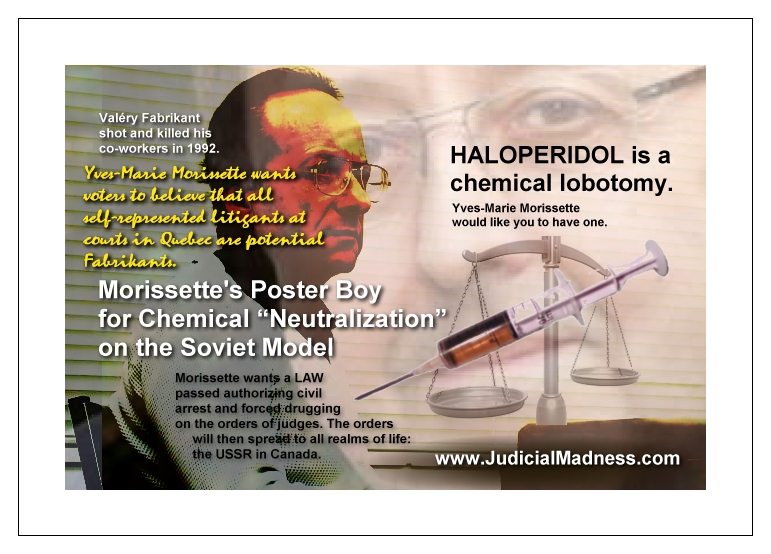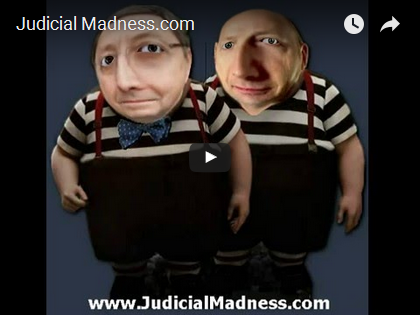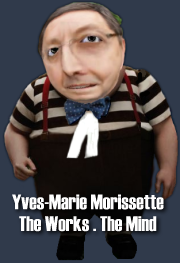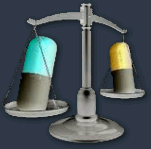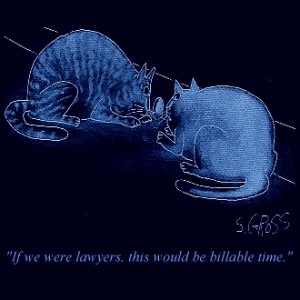The “Catastrophe” is Returning: Old KGB-ers are Reviving the Soviet System
CATO INSTITUTE
The Power of Memory and Acknowledgement
Distinguished Lecture
Tuesday, October 13, 2009
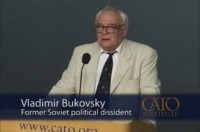
Vladimir Bukovsky, Former Soviet Political Dissident
This is a 7-minute, 20-second segment of a much longer video. See the video for this transcript, posted below (very bottom).
Introduction
Presenter:
It has been twenty years since the fall of Communism1, but the regime that meant death for tens of millions of people has never been condemned morally, and has left many KGB veterans in charge of the Russian government today.
Former Soviet dissident and Cato Institute Senior Fellow, Vladimir Bukovsky, reflected on the need for Russia to acknowledge the criminal nature of its Communist past, at the Cato Institute, October 13th, 2009. This is a portion of his speech.
Vladimir Bukovsky:
The worst scenario which one could have imagined twenty years ago, could be observed in Russia. What we see there is a march backwards, I would say. Some kind of revisionism. Some kind of restoration process is going on there.
As we all remember, at that time, President Putin defined the end of the Soviet Union as the greatest geopolitical catastrophe of the Twentieth Century. Which was really a strange thing to hear.
I always believed that the emergence of the Soviet Union was the greatest geopolitical catastrophe of all time. But he thinks the opposite. And, of course, he acts accordingly.
For them, for the people who came to power with him – and they are predominantly KGB people – the most important thing is to restore as much as possible all the Soviet system.
Of course, they understand that it’s not possible to do completely. The time has changed. There are so many things which could not be returned, and they don’t try to do that.
The country cannot be closed down. With modern technology, with Internet, with mobile phones and satellite television, you can’t close down the country, and if you don’t close it down, you can’t restore the Soviet system.
Also, I doubt they can introduce many restrictions on movement any more. For example, the right to travel abroad – although it may be irritating for them – nevertheless is impossible to cut down.
In the country which is so much corrupt, as Russia today, any restrictions actually translate into the price of bribery. It’s kind of a quasi-market mechanism. So, if they try to reduce some degrees of freedom for people, people will just pay bribes bigger than they would otherwise.
So, it is an attempt – a not very convincing attempt – at restoring the Soviet system. But sometimes, pretty painful.
I mean, elections today are not elections. We all know that. I participated two years ago, just for fun, in what they call presidential elections. It was not presidential elections. It was not elections at all. It was kind of a game. What would they invent to disqualify you?
We did it, several of us, including [[[ Guy Gasparov ]]], myself, [[[ Liam Sophe ]]], uh – Cassiano. And we thought, who of us would be disqualified on which stage. That was kind of a game. And, Guy was the one to drop, the first to drop down.
I managed to hold on for longer than others. But the longest was Cassiano. He even managed to get two million signatures. But then, he was told that all of the signatures are forgeries. Including his own. So that –
[ Laughter ]
So, he was disqualified, as well.
No, it’s not elections any more. And we have lost this institution. Other institutions of democracy are very quickly dismantled. Freedom of the press is now – it’s symbolic.
What remains of that freedom of the press are probably one radio station and one newspaper, and their fate is not clear, even as we speak.
What is more depressing is that the country returned to political repressions. We have today, a couple of dozens of political prisoners, again. Which I thought would never happen in my lifetime.
Even more than that, at a certain point, the psychiatric use for repressions was returned again. And that was by far the most depressing news for me. I thought we buried that method of repression forever.
And yet, it did happen again. Several cases. Luckily, we managed to stop it in time, but we cannot guarantee it would not be renewed tomorrow.
Also, the new feature which we didn’t see much, but our parents saw a lot, political murders. That became kind of normal way of life in Russia today.
Someone calculated that in the last eight years, sixty-two journalists were murdered. I would imagine not all of them were murdered by the orders of the Kremlin. Some of them were ordered by local authorities because they were investigating local corruption.
But nevertheless, this kind of practice is condoned from the center, because none of these crimes was ever successfully investigated and prosecuted. So it is to this very day, not a single assassin was brought to justice.
In the foreign relations, the current leadership is also trying to restore what they used to call the “Soviet sphere of influence”. Which made them aggressive and somewhat dangerous for the neighbours.
We have seen a year ago what happened with Georgia. But it’s only one episode of many. Previously, before that, we had the rather sad story of political pressure on Estonia. Right now, we can observe mounting pressure on Ukraine because of the coming Ukrainian presidential elections, with all sorts of threats and rumors being circulated. And uh, the idea of the Kremlin, of course, is to scare the population by the prospect of possible military conflict, so much that they would vote for a pro-Moscow candidate.
I think that’s their calculation, but I’m afraid they are not very good at these kind of analyses, and they are bound to miscalculate greatly. I would expect Ukrainians would actually become very angry at these attempts at meddling into their elections, and they would probably elect the most anti-Russian candidate, just as their way of reacting to it all.
Presenter Closing: Vladimir Bukovsky is a senior fellow at the Cato Institute, and a former Soviet political dissident. You can watch the full event at Cato.org.
1 Ed. JM: It’s ironic that a former Soviet dissident is apparently not familiar with the work of Soviet defector to the USA, Anatoliy Golitsyn. His books, New Lies for Old and The Perestroika Deception, explain that the “fall” of Communism was a deception orchestrated with a view to long-term penetration and restructuring of the West, pending the revival of the USSR and a world-wide “October Revolution”. According to my own research on the Quebec situation, I believe that Golitsyn is right. Visit my other web site, CANADA How The Communists Took Control, at WordPress, and see for yourself. In particular, read the featured article, “Singing Tomorrows”, and download my exclusive English translations of the Parti Québécois’s 1972 manifesto calling for a Communist State of Quebec, on the model of an Eastern European Soviet satellite.
